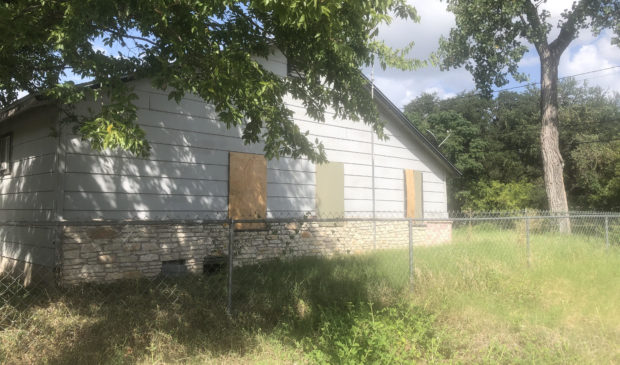Housing department seeks to move unused home repair funds toward homelessness
Monday, July 20, 2020 by
Chad Swiatecki The city will likely redirect a $2.6 million unused Community Development Block Grant intended for home repairs to create more housing for the homeless in the next budget year.
Last week the Community Development Commission voted 9-2 to approve the 2020-21 action plan drafted by the Neighborhood Housing and Community Development Department, which lays out how the city will use federal Housing and Urban Development dollars. Commissioners Bertha Delgado and Michael Tolliver voted against the item, which needed eight votes to be approved.
The money for home repairs is being recommended for reallocation because of long-acknowledged bottlenecks in securing contractors to perform repairs and the difficulty in getting the work done during the pandemic.
The plan for next year, which is part of a larger five-year plan approved last year, will receive a public hearing with City Council on July 30 and is set for possible adoption on Aug. 15.
Rebecca Giello, deputy director of Neighborhood Housing and Community Development, said the reallocation of unused funds toward more hotel and motel conversions wouldn’t affect future funding for the home repairs program, which commission members pointed out has a waiting list of several thousand people.
“Due to the pandemic our staff has not been able to go into the housing structures and work directly with clients. We are definitely seeing a lag in production around those programs, specifically in CDBG-funded programs,” she said. “We have been told some are concerned those dollars will be redirected. I can say there is not an internal dialogue right now around the home repair program and we’re looking at how those programs can continue to be directly beneficial in that area.”
Throughout the meeting commission members pushed for more information about how the reallocation decision was being made and how the city could use the home repair dollars more effectively.
“I’ve heard complaints in the community about the emergency repair program switching from replacing an entire roof to just patching a portion of a roof,” Commissioner Karen Paup said. “I’m sure there are very low-income homeowners who are struggling to hang on to their homes and face the same risks of Covid like other people do, and that having a decent place to live is important to them. I think housing the homeless is very important and so is helping people to manage to hang on to their house.”
Delgado said in her view the city already has sufficient funding for the homeless. She plans to aggressively oppose the action plan in front of Council this month and said homeowners in East Austin should have access to the home repair funds as soon as possible to address the long wait.
“When you talk about removing money from a program that’s been in place for decades, as we know that’s what your program has always offered from the beginning, I want to know that breakdown,” she said. “We’re getting not even the good repairs for homes here, especially in my area in East Austin. These homes are 60 years old and falling apart.”
Commissioner Amit Motwani sought to have city staff deprioritize programs with a history of unused funds, but Giello resisted that move because of the long-term effects it could have on the five-year plan for using federal housing dollars.
Motwani said the ongoing effects of the pandemic are likely to create new needs for how the city uses its federal funding.
“Obviously for the current fiscal year those dollars won’t be reallocated and perhaps should stay where they are to stay with the framers’ intent,” he said.
“(I)t does seem pretty clear to most of us that the next six months if not the next year of life is going to be pretty different, and the thing that would prevent classes from thriving and preventing internal home repairs from happening … it seems a lot of those barriers, it’s improbable they’re going to disappear quickly.”
The Austin Monitor’s work is made possible by donations from the community. Though our reporting covers donors from time to time, we are careful to keep business and editorial efforts separate while maintaining transparency. A complete list of donors is available here, and our code of ethics is explained here.
You're a community leader
And we’re honored you look to us for serious, in-depth news. You know a strong community needs local and dedicated watchdog reporting. We’re here for you and that won’t change. Now will you take the powerful next step and support our nonprofit news organization?









